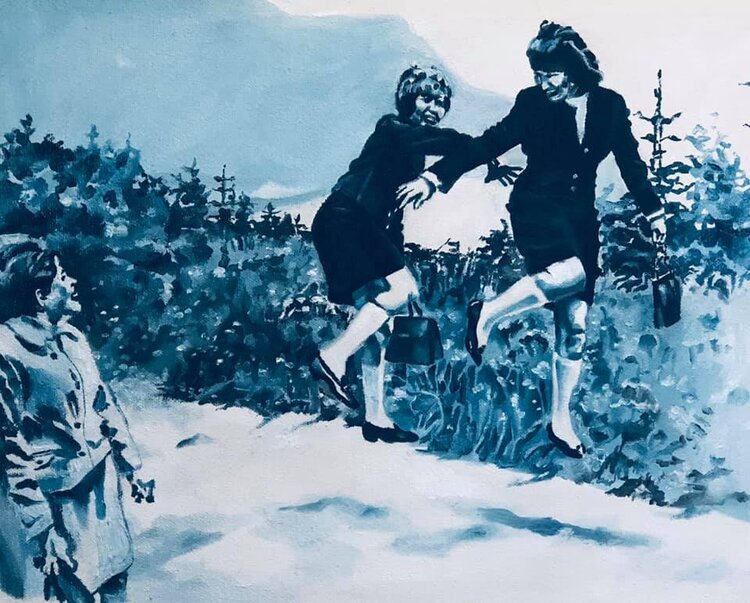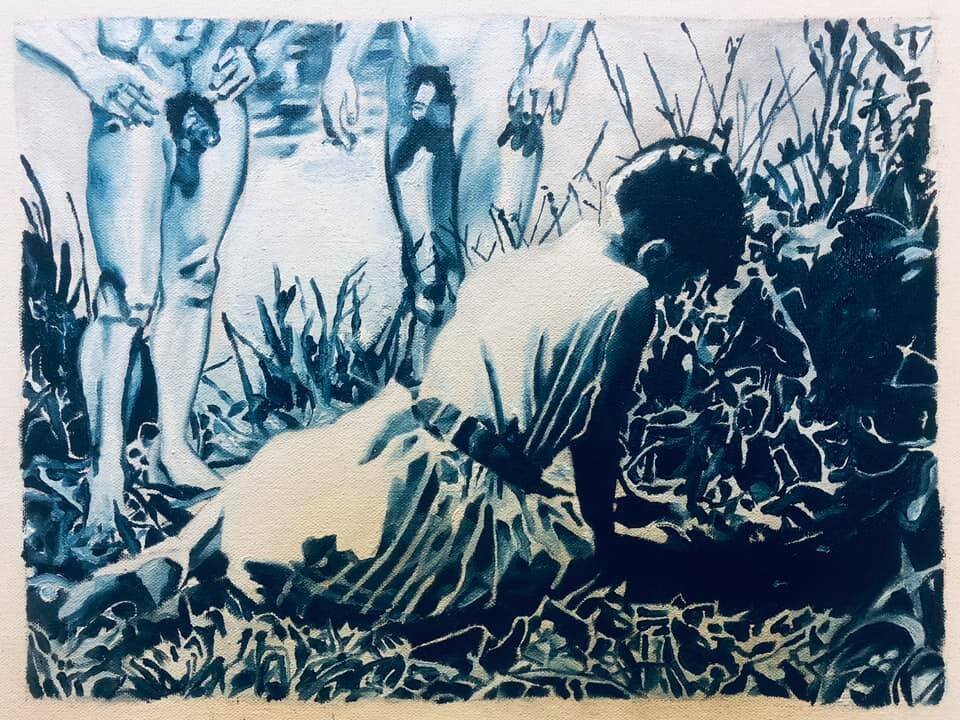Beyond my portrait work, I have delved into working through and transforming photographs from my family album. Director and curator, Lauri Firstenberg describes the process of artists working with archives as the artists attempting to “unearth narratives” and “min[ing the archives] for visual material and conceptual strategies” I look for self-healing in my archive work by reconstituting images in order to suggest a more truthful but also a more uncomfortable version of family and to unearth traumatic narratives never spoken of. Though the family album work is personal, I sought to create symbols that spoke to a more universal sexual and physical trauma: symbols that perhaps say more than words. Creating these interventions into family photographs is a new approach in my practice to generate dialogue and highlight alternative narratives within the existing narratives around identity, trauma and familial power structures. My practice engages with issues of race, perception, sexuality, gender, history, location, and memory. I examine how our personal experience is influenced by constructed histories. Using painting as my main practice, my approach takes aim at the family politics of the time as well as its legacy today. What is remembered, what is archived, and how we see the world anew. All work is done on loose scraps of canvas about varying from 6”X9” to 5”X8” with oil paint.
Once done with my own album, I decided to take up the same exercise using my mother’s family albums. Ursula Welsch was a young woman born under the Harz mountains in Germany: a location fabled as a meeting place for witches. She was also the daughter of a Nazi soldier named Bruno. Ursula’s story is the story of a young woman brutalized by her older brother (a member of the Nazi youth), searching for a younger sister who ran away from home time and again: the story of a young woman who loathed her overlord of a mother but adored her whimsical and fun loving father (who was, as stated, a Nazi). Ursula’s story is of a woman who became pregnant at 17 by an American soldier and who threw herself in an American river when she discovered he had another family, of hiding in an American cornfield having jumped out of a moving car driven by a couple that she decided was taking her somewhere to do things she did not want to; a story of a woman who would suffer physical abuse by her second husband, my Mexican American father. Yet a woman was an apologist for all of this for, what she calls, the sake of “family”. All work is done on loose scraps of canvas about 6”X9” with oil paint.




















